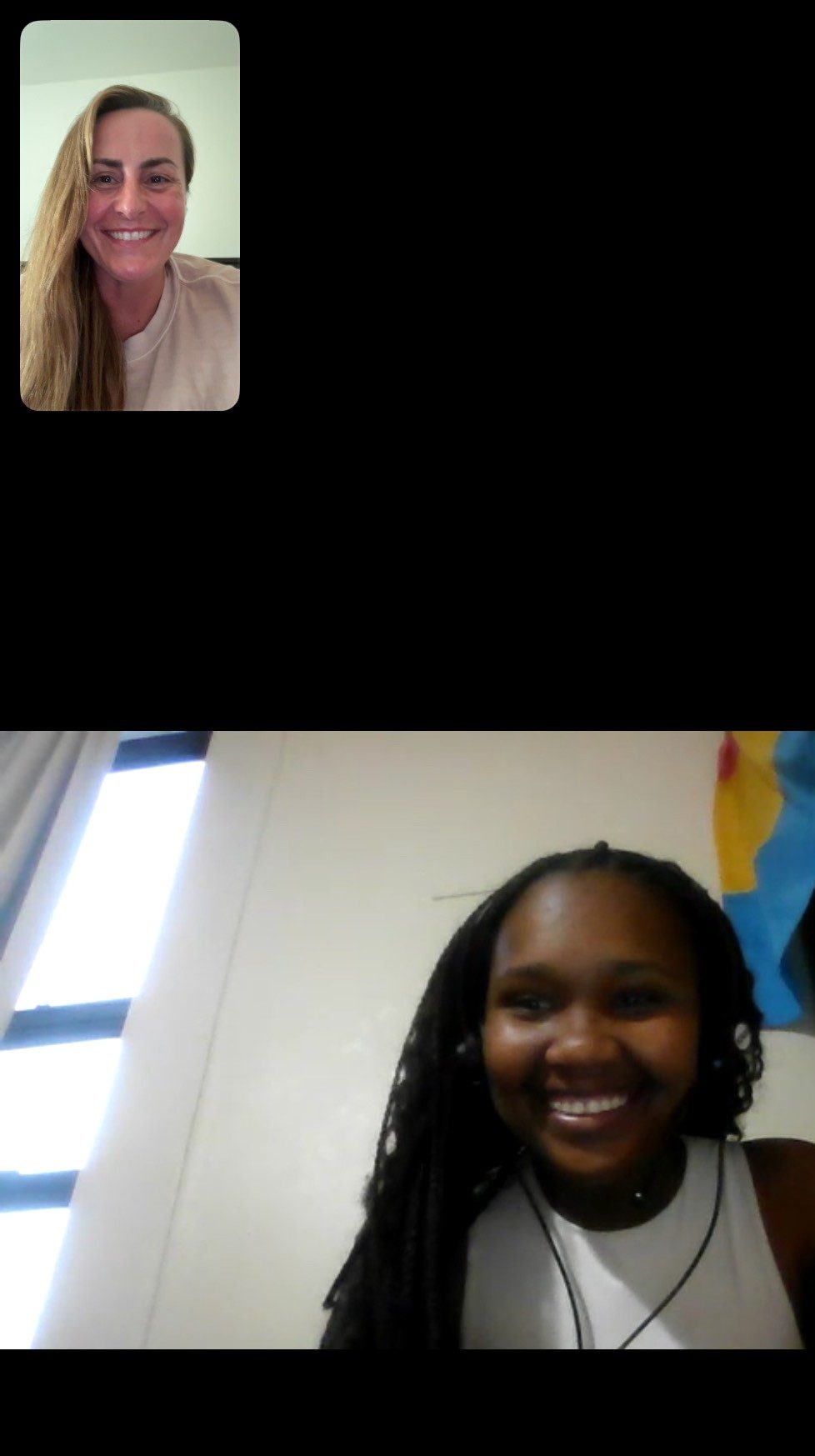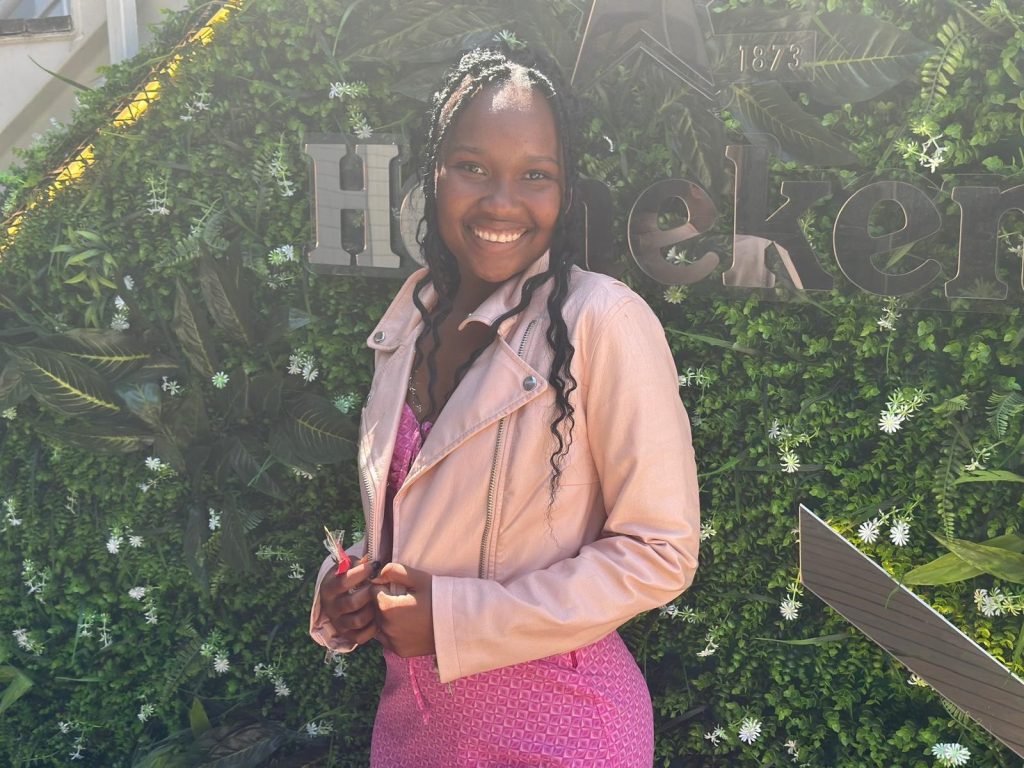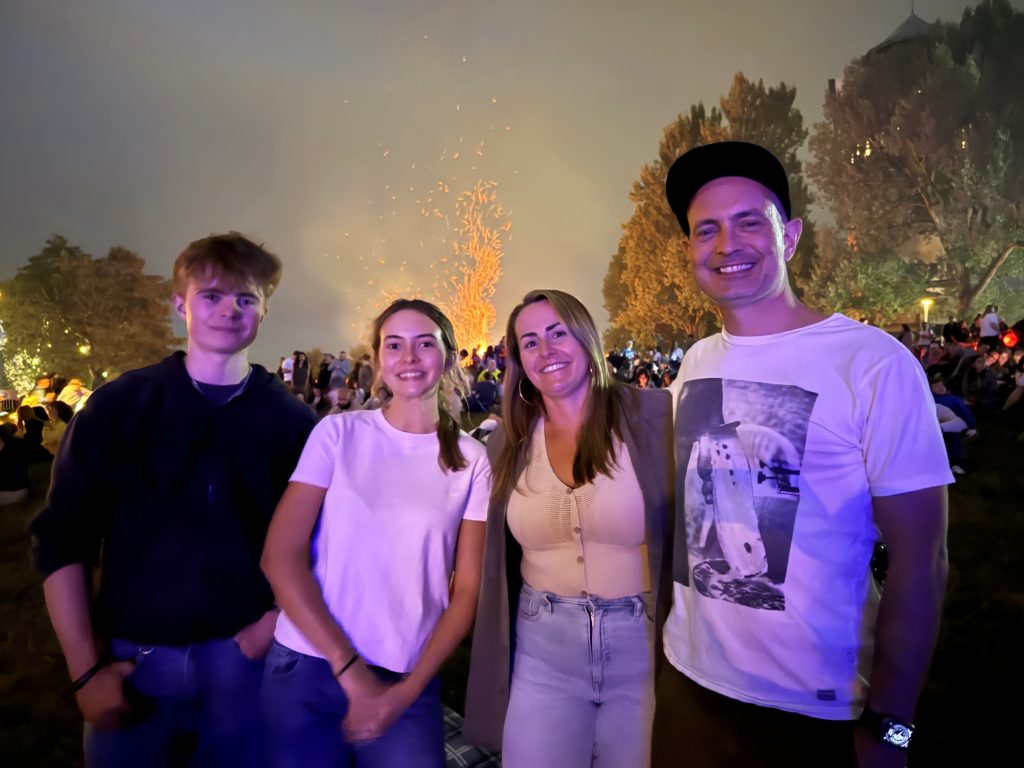By Leslie Donaldson:
On October 13, 2023, I received a WhatsApp message that would change the trajectory of my life forever.
It was from a 17-year-old girl named Likhona, living in a township in Cape Town, South Africa. I was 43, living in a small town in Switzerland. We couldn’t have been more different. Or so I thought. She was still in high school; I was a school teacher and a mother of two teenagers. At the time, I didn’t even know what a “township” was.
Her message came through a mentorship initiative for the Be a Nelson Movement, which connects coaches from around the world with young disadvantaged youth from South African townships who demonstrate leadership potential, with the hope of nurturing future changemakers within their communities.
I had signed up as a coach with no formal experience, just a heartfelt, if somewhat cliché, desire to make the world a better place. What I didn’t expect was how profoundly the experience would transform me.

When I first saw her message, I wasn’t sure what to say. Our lives seemed oceans apart. But I noticed her profile photo was of her dog. I had a dog too, so I sent her a photo of mine. That tiny moment of shared connection was the beginning.
Our conversations started slowly, just messages here and there. She told me about school and how hard she was studying for her final exams. I began to learn about her world, about life as a young woman in a township where safety, especially for girls, was a daily concern. Likhona had to walk down the road to use a neighbour’s Wi-Fi to talk to me, and she had to be back before dark. The neighbourhood wasn’t safe after sunset, especially for a teenage girl.

And yet, there was something about her that struck me deeply; her resilience, her fire, her unwavering passion to change things for the better. A girl had recently been murdered at her high school, and Likhona was devastated. But instead of retreating, she organised a protest, raised her voice, and even began a group in her high school to talk about the treatment of women in her community.
As our conversations grew more personal, we began to uncover unexpected and painful parallels in our lives. Despite the distance between us, we shared strikingly similar beginnings. Neither of us had lived with our fathers. We were both raised by our grandmothers and had complicated relationships with our mothers. I grew up on welfare in Canada; Likhona lived in near-poverty in a crowded home filled with extended family. Our worlds looked different on the outside, but emotionally, we walked similar paths. Both were shaped by instability, resilience, and the quiet ache of growing up too soon.
Likhona loved to write poetry, which she often shared with me. The raw, vivid, powerful verses carried all the weight of her hopes, fears, and dreams. Her words often brought me to tears. Through her poetry, I truly saw her: a girl fighting not only for her education but for her dignity, her future, and her right to live freely.
She studied relentlessly. Her only chance to escape her circumstances was to earn top marks and win a scholarship to university. She isolated herself to focus. Her survival depended on her grades. She was lonely, exhausted, and under pressure. I became her confidant, her cheerleader, her safe space.
But it wasn’t one-sided. I needed her, too.

I had recently lost my brother to a drug overdose. For much of my life, I had tried to save him, and his death left me in a very dark place. At the same time, my teenagers were growing up quickly, independent, safe, and living in a world so different from Likhona’s. They didn’t need me in the same way anymore, and I was quietly grappling with a sense of loneliness and loss of purpose. But Likhona needed me. She listened. She trusted me. She reminded me that I still had something meaningful to offer. Our connection brought me back to life in a way I didn’t know I needed; it gave me direction, hope, and a renewed sense of value.
As graduation approached, the weight of everything rested on the outcome of Likhona’s final exams. The two months we spent waiting for her results were some of the most emotional and anxiety-filled days of my life. I worried about her often, wondering what we would do if the results didn’t come. But then came the call.
She had received the scholarship.
I cried tears of joy, relief, and pride. Her life was about to change in a profound way, and I felt incredibly grateful to have played a small part in her journey.
Today, Likhona is at university. She’s living in a dorm, away from the daily danger of her township. She’s still driven, still fighting, still dreaming, and we still talk regularly. She is no longer just my coachee. She is family. She is my daughter in every way that matters.
